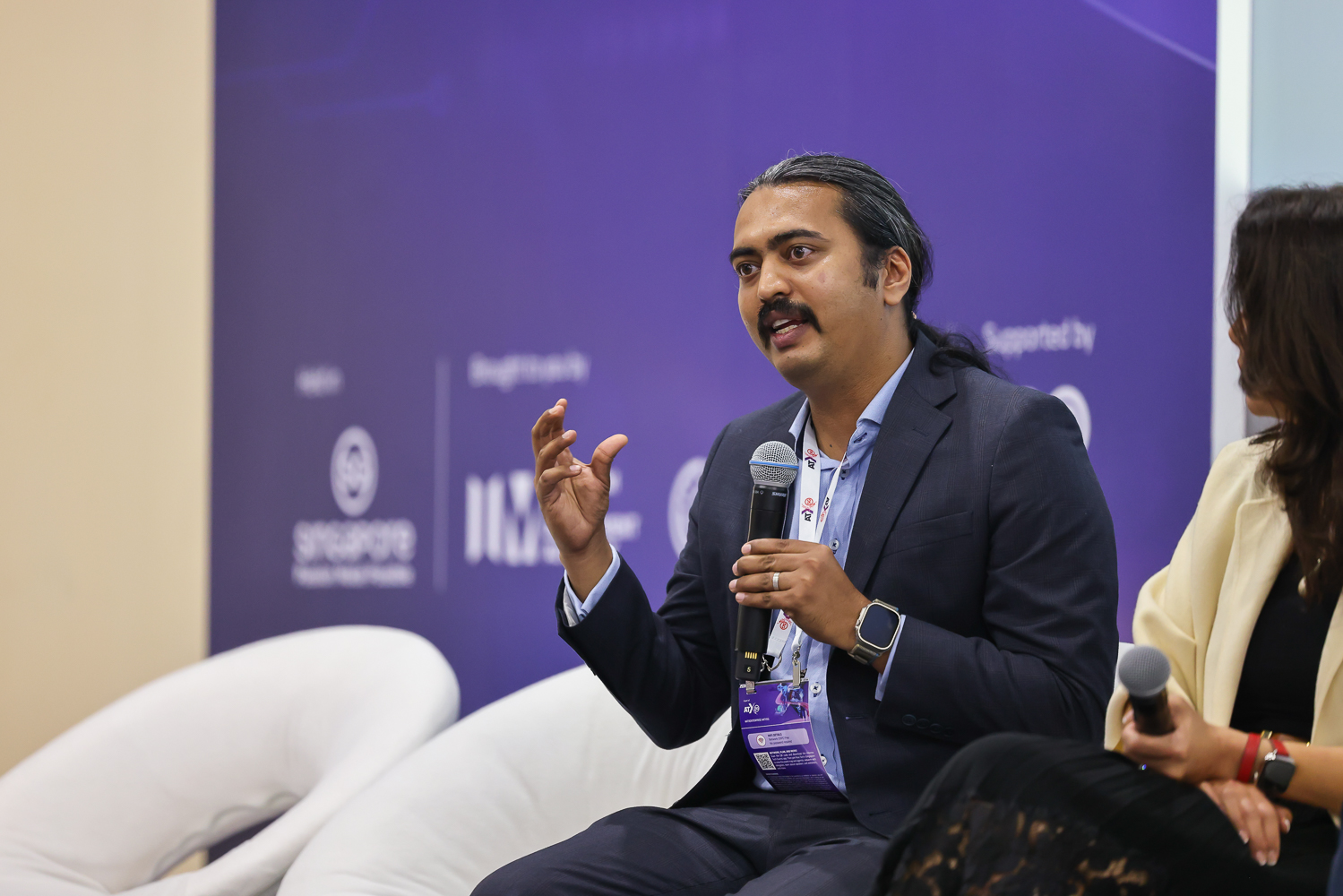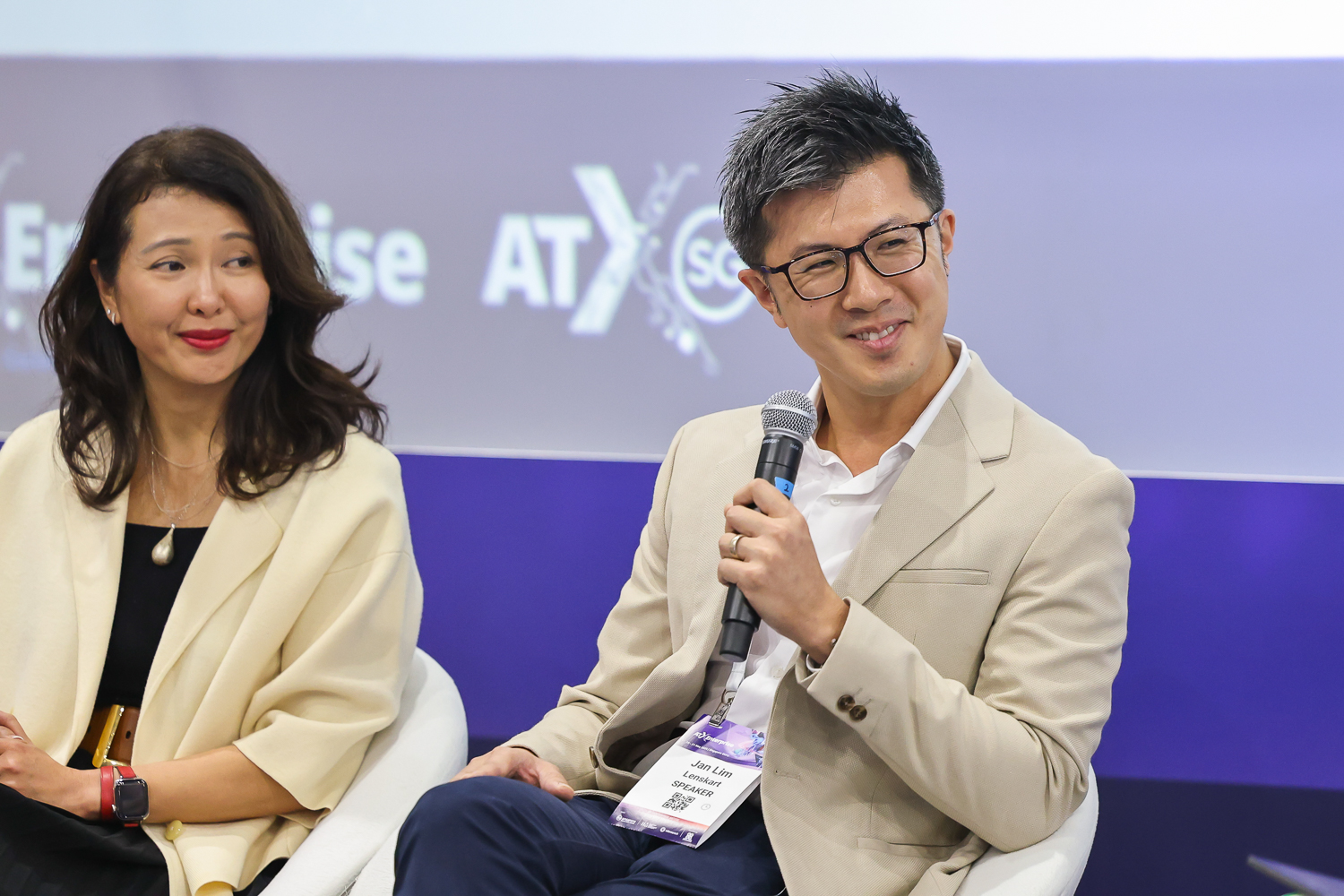Maximising Profits Using AI: Strategic Insights for Growth and Efficiency

Artificial Intelligence (AI) is emerging as one of the most powerful tools for business transformation, offering opportunities to optimise operations, enhance customer experiences, and boost profitability. During the ATxEnterprise event, industry leaders provided insights into how businesses can leverage AI not only to reduce costs but to expand into new markets, transform workforces, and stay competitive in a fast-changing digital economy.
(Explore more about AI-driven business strategies at ATxEnterprise here.)

AI Leadership: Fostering Innovation and Risk-Taking
Effective AI adoption requires strong leadership that fosters a culture of innovation and calculated risk-taking. According to Anil, organisations must embrace AI's potential to not only enhance cost efficiency and productivity but also to explore new sectors at a lower marginal cost. AI can provide strategic differentiation by enabling companies to enter adjacent markets while keeping expenses down.
Anil stressed the importance of leadership in understanding AI’s broader impact on employees, customers, and partners, ensuring that its integration aligns with long-term business goals. Organisations that can create a risk-tolerant culture will be better positioned to leverage AI for sustainable growth.
(Explore more insights from AI leaders by checking out the full conference agenda.)

AI in Retail: Enhancing Customer Experience and Boosting Sales
Jan, the regional CEO of Lenskart, shared how the eyewear retailer has successfully integrated AI and augmented reality (AR) into its business model to enhance the customer experience and improve sales conversions. For example, Lenskart uses AI to improve data visibility, helping the company make better staffing decisions and optimise operations.
Jan emphasised the importance of gaining organisational acceptance for AI initiatives. He noted that setting clear learning objectives and fostering an environment that encourages AI adoption has been key to Lenskart's success. In the retail space, AI is also being leveraged to deliver personalised experiences, building trust and significantly boosting conversion rates.
(Interested in how AI is transforming retail? Pre-register for ATxEnterprise 2025 to stay updated on retail innovations.)

Workforce Transformation: Preparing Employees for the AI-Driven Future
The shift towards AI is creating a pressing need for companies to upskill their workforces. Feon, Managing Director of LinkedIn Asia Pacific, highlighted the growing demand for AI-related skills across industries and how companies must prepare their employees for the future. LinkedIn Learning’s AI-driven courses and AI-enabled tutors are helping organisations navigate this shift by offering personalised coaching that enhances employees’ capabilities.
Feon stressed that workforce transformation is not just about equipping employees with new skills; it’s about positioning AI as a tool that will redefine job roles, allowing employees to focus on more complex, human-centric tasks. Organisations that invest in their workforce's AI literacy will be better prepared for the changes AI will bring.
(Interested in workforce transformation? Apply to be a speaker at ATxEnterprise 2025 to share your insights.)

Identifying Quick Wins and Achieving ROI with AI
Implementing AI can seem like a daunting investment, but the panelists emphasised the importance of identifying quick wins—areas where AI can deliver measurable results in the short term. Whether it's through cost savings from optimised processes or increased revenue from personalised customer experiences, businesses should prioritise use cases that provide immediate returns.
AI-driven decision-making also helps businesses uncover opportunities they may have missed, from operational improvements to market expansion. By viewing AI as a tool that delivers both cost-saving and revenue-generating benefits, companies can maximise their return on investment (ROI) while staying competitive in a rapidly evolving landscape.
(Explore more strategies for achieving quick wins with AI at ATxEnterprise by pre-registering for 2025.)
Navigating AI’s Impact on the Workforce and Beyond
The panelists also explored how AI is reshaping the nature of work. By automating routine tasks, AI allows employees to focus on higher-value activities, such as problem-solving and strategic thinking. This transition is particularly important as companies seek to create a people-centric AI strategy, where technology enhances human capabilities rather than replacing them.
Anil and Feon both highlighted that businesses must continuously assess risks and evaluate the benefits of AI, ensuring that employees are not left behind in the AI revolution. Moreover, as AI becomes more pervasive, businesses should actively engage their workforce in the adoption process, providing training and support to help employees adapt to new tools and roles.
(Want to learn how AI can transform your workforce? Pre-register for ATxEnterprise 2025 and join the conversation.)

AI as a Profit Driver and Growth Enabler
AI is more than just a technological trend—it’s a profit driver and an essential tool for business growth. From enhancing customer experiences to transforming the workforce, AI offers a wealth of opportunities for companies that are ready to embrace it. As outlined by the panel at ATxEnterprise, success with AI requires strong leadership, a commitment to workforce transformation, and a focus on quick wins that yield tangible returns. The companies that adopt a strategic approach to AI will be the ones leading in both profitability and innovation.
(Discover how AI can drive profits for your business by pre-registering for ATxEnterprise 2025 today.)